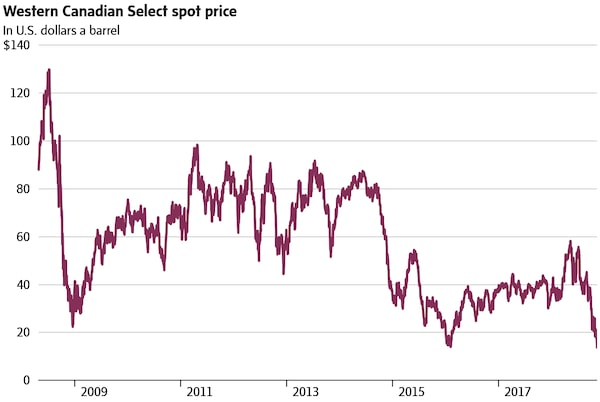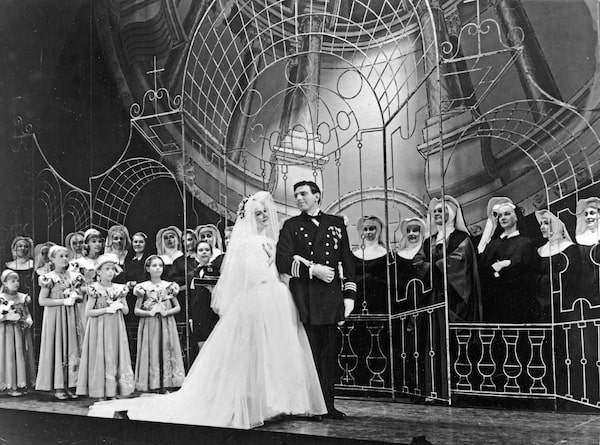Good morning,
These are the top stories:
The latest Brexit crisis, explained
Resignations, calls for her ouster and even talk of another referendum. British Prime Minister Theresa May is facing attacks from politicians on all sides as she tries to push forward with her draft Brexit agreement struck with the European Union. Here’s a primer on the unfolding crisis:
Tory party turmoil: Four of May’s cabinet ministers have resigned, including Brexit secretary Dominic Raab who said the agreement would keep Britain too closely tied to the EU. Roughly 50 MPs in May’s Conservative Party said they won’t vote for the deal. There’s talk of a confidence vote on May’s leadership, with 48 Tory MPs needed to call for one. For her part, May said: “Leadership is about taking the right decisions, not the easy ones. … Am I going to see this through? Yes.”
The other parties: Labour Leader Jeremy Corbyn rejected the deal as “half baked,” saying “the government is falling apart before our eyes.” Liberal Democrat Leader Vince Cable said that another referendum should be held if the vote fails in the House of Commons.
What comes next: British Parliament is set to vote on the agreement in early December. May will need to garner enough support from MPs in opposition parties, despite all party leaders coming out against the deal. If she can’t and it’s voted down, the government has 21 days to come up with a new plan and if that fails, what comes next is unclear. Britain could still leave the EU in March without a deal, or there could be an election or second referendum.
Background on the proposed deal: This is purely a withdrawal agreement; the terms would give Britain and the EU until December of 2020 to negotiate a trade deal. During that time Britain would essentially remain an EU member. If a deal can’t be reached by the end of 2020, Britain could decide to invoke a backstop to remain in the EU customs union while adding protection for Northern Ireland to ensure its border with Ireland remains virtually barrier-free.
The Canadian side: John Ibbitson writes: “Assuming the chaotic mess at Westminster somehow resolves itself, and Brexit actually occurs next March 29, the first free-trade agreement the British sign outside the EU could be with Canada, reversing the relationship between the mother country and her former dominion.” (for subscribers)
This is the daily Morning Update newsletter. If you’re reading this on the web, or it was forwarded to you from someone else, you can sign up for Morning Update and all Globe newsletters here.
Crude prices punished – and Alberta’s oil industry is divided on what to do

Canada’s heavy-oil benchmark fell to US$13.46 a barrel yesterday, its lowest closing price on record. While prices stabilized on Friday morning, the recent drop has prompted some energy firms to urge Alberta Premier Rachel Notley to intervene and force production cuts (for subscribers). Artificially reducing supply would raise crude prices, Cenovus, MEG and others say. But Suncor and Husky – whose refining operations benefit from low prices – oppose government action and say such a move would trigger U.S. retaliation. A major factor for the price crash is a shortage of pipeline capacity as production increases. Without the means to ship, producers are finding themselves with a backlog of inventory and are selling at steep discounts.
Police say a prestigious Toronto private school didn’t report an alleged sexual assault
The police force said it learned about the alleged incident at St. Michael’s College School after receiving information from the media. Officers are now investigating the incident, which is said to involve a football team where a group of boys held down another student and allegedly sexually assaulted him with an object. The incident was captured on video and circulated among students; police have said the footage meets the definition of child pornography and that anyone who has it must delete it. St. Michael’s has cancelled the rest of its junior football team’s season.
The school told parents in a letter on Wednesday that it had involved authorities after learning about “two very serious incidents.” But police said the school only informed them of one case, believed to involve the basketball team bullying a student and soaking him with water.
Canada appears poised to issue sanctions against Saudi officials
Foreign Affairs Minister Chrystia Freeland said her government “welcomes” new U.S. sanctions against 17 Saudis linked to Jamal Khashoggi’s killing and indicated Canada is “actively considering” following suit with its own measures. That came as Saudi Arabia’s public prosecutor said he would seek the death penalty for five people said to be involved in the murder and dismemberment of the dissident journalist. Washington’s sanctions are likely to include a ban on travel to the U.S. and a freeze on financial assets there. Canadian penalties would probably be similar.
Here’s the view from Campbell Clark: “Targeting those 17 Saudis for sanctions still amounts to accepting the idea that these were rogue agents. Until Western governments start to zoom in on the man with iron-clad power over Saudi Arabia and its security services – Crown Prince Mohammed bin Salman, widely known as MBS – we’re still being asked to believe fiction.”
Got a news tip that you’d like us to look into? E-mail us at tips@globeandmail.com Need to share documents securely? Reach out via SecureDrop
IN CASE YOU MISSED IT
The Ontario government is closing down watchdogs and promising a low-income tax cut
Doug Ford’s Progressive Conservatives tabled their first fiscal update, which includes a plan to axe three independent officers: the children’s advocate; the environment commissioner; and the French-language services commissioner. Rent control on new units is also being eliminated. Low-income earners will receive a credit of up to $850 for individuals or $1,700 for couples, though critics say increasing the minimum wage to $15 an hour, a plan Ford halted, would have done more to help. The PCs also plan to scale back political fundraising rules: Politicians and top staffers will once again be able to attend fundraising events, and donation limits will rise from $1,200 to $1,600. The government said it has reduced the provincial deficit by $500-million to $14.5-billion.
MORNING MARKETS
Markets mixed
European stocks recovered but sterling and the euro remained fragile on Friday, after some of the most dramatic 24 hours yet in the Brexit process and another turbulent week for world markets. Tokyo’s Nikkei lost 0.6 per cent, while Hong Kong’s Hang Seng gained 0.3 per cent, and the Shanghai Composite 0.4 per cent. In Europe, London’s FTSE 100 and the Paris CAC 40 were down by between 0.1 and 0.4 per cent by about 6:46 a.m. ET. Germany’s DAX was flat. New York futures were down. British Prime Minister Theresa May’s woes amid the Brexit revolt are still on the minds of investors, and analysts are watching the pound. The Canadian dollar was just shy of 76 US cents. Oil rose on hopes supply cuts will be agreed at OPEC’s meeting on Dec. 6, but failed to recoup recent losses.
WHAT EVERYONE’S TALKING ABOUT
McGill shouldn’t need a vote to do the right thing – and change its team name
“In 2017, the McGill Provost’s Task Force on Indigenous Studies and Indigenous Education recommended ‘moving forward under a McGill team name that breaks with the associations that ‘Redmen’ evokes in contemporary society.’ In the name of reconciliation, and basic respect toward Canada’s Indigenous peoples, that seems like the right thing to do. Surely, there are any number of alternative team names available to McGill, which was founded in 1821 and has almost 200 years of history to draw on. What about the McGill Reds? Or Celtics, given founder James McGill’s Scottish origins? Or Martlets, as the women’s teams are already called, in a reference to the birds on the McGill coat of arms? Reconciliation isn’t all about big gestures. Simple ones matter just as much.” – Konrad Yakabuski (for subscribers)
Doctors must speak out on gun violence – because it is our lane
“The gun debate is the centre of my professional highway. I was on call on July 22, 2018 – the night that two people were killed and 13 others injured in a mass shooting on Danforth Avenue in Toronto. I am a trauma surgeon, having worked for nearly two decades at one of the country’s busiest trauma centres. I know of what I speak. From my lane, my team and I have resuscitated, operated on, cared for, consoled and attended funerals of far too many victims of horrific gun violence. Our lane is the lane from which we will do the research that helps us to understand how to prevent gun deaths in Canada. From our lane we will ask questions about what the proliferation of guns in Canada means for the health of our families, towns and cities. From our lane we will treat the victims of gun violence and quite literally sew back together the shattered organs, vessels and lives torn apart by bullets fired by guns.” – Najma Ahmed, Toronto-based trauma surgeon
Ahead of a federal election, what road will Conservatives take on immigration?
“With the emergence of Maxime Bernier’s party and the success of the CAQ, some variation [of what’s happening in Europe and the U.S.] is here today. The question is whether Canada’s case of xenophobic populism will be a mild one that inoculates us against a more virulent strain, or whether it will take hold and change the norms of our political culture in a deeper way. To some extent, this will be up to Andrew Scheer himself: Will he compete with Bernier for anti-immigration votes and expand the issue’s place in our political discourse? Or will he follow the model of the early Harper years, when the Conservatives used pocketbook issues and selected socially conservative messages to connect with new Canadians? His answer will affect his party’s fortunes – and likely have a powerful effect on Canadian political culture for years to come.” – Michael Adams, president of the Environics Institute and author of Could It Happen Here? Canada in the Age of Trump and Brexit
LIVING BETTER
Two must-see films, and two others to consider (for subscribers)
Steve McQueen’s Widows, a portrait of life and death in a bloody and bruising America, is one of the year’s greatest films, Barry Hertz writes. It’s a crowd-pleasing crime flick that will provoke audible gasps and bursts of applause while also exploring ideas about class, race and history. (4 stars)
Johanna Schneller writes that A Private War, starring Rosamund Pike and based on the true story of deceased war correspondent Marie Colvin, is a powerful acknowledgment of the importance of journalism. (4 stars)
Hertz says the western The Ballad of Buster Scruggs is peak Coen Brothers, albeit sliced and diced for Netflix. (3 stars)
Jason Reitman’s The Front Runner, on the rise and fall of 1988 presidential hopeful Gary Hart, falls behind the pack, Hertz writes. (2 stars)
MOMENT IN TIME
The Sound of Music debuts on Broadway

(Authenticated News/Getty Images)Authenticated News/Getty Images)
Nov. 16, 1959: Barbie dolls, Ben-Hur and Mercury Seven astronauts – in 1959, these were a few of our favourite things. Another one? The Sound of Music, a bountiful 1938-set drama about fleeing from Nazis and the love of singing that went straight from Broadway’s Lunt-Fontanne Theatre to a show-tune-loving public’s heart. The Sound of Music used the Maria von Trapp memoir The Story of the Trapp Family Singers as its source book. Lyrics came from Oscar Hammerstein II, with music by Richard Rodgers. On stage as the young Austrian governess was Mary Martin, described in a New York Times review as possessing a common touch, glowing personality and a “plain voice that makes music sound intimate and familiar.” Familiar indeed: Selections including My Favorite Things and the theme song became standards, while sing-along screenings of the beloved 1965 film adaptation starring Julie Andrews and Christopher Plummer are popular to this day. The Alpine-based musical itself faced no uphill battle at the 1960 Tony Awards, where it captured five prizes. Sadly, The Sound of Music was the last musical written by Rodgers and Hammerstein; the latter died of stomach cancer nine months after the Broadway debut. – Brad Wheeler
If you’d like to receive this newsletter by e-mail every weekday morning, go here to sign up. If you have any feedback, send us a note.
 Arik Ligeti
Arik Ligeti